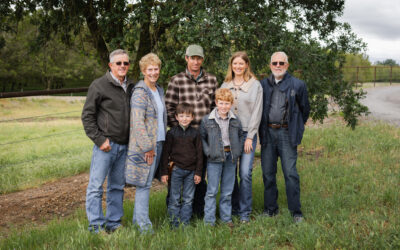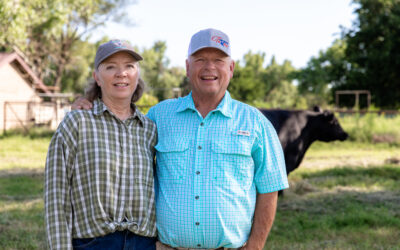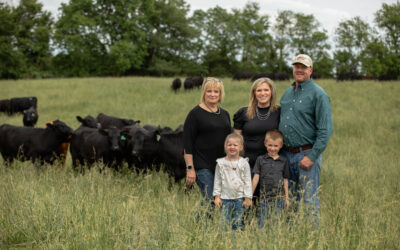
Quality down the tracks
There’s something about the contradiction of freedom confined to a track that seems to grab my attention.
But as I stepped foot over Georgia’s border into Cusseta, Ala., cattle were the ones that kept it.
The train merely took me back in time.
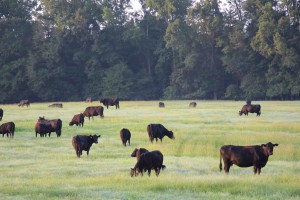
In the 72 years since, generations of Collinses have raised even more generations of Angus cattle on the ground that’s sustained them both.
“My grandfather bought the farm in ’43,” James (Jimmy) Collins IV tells me. Having “showed many a Hereford steer through high school,” Jimmy switched to Angus his senior year and soon after, the herd followed suit.
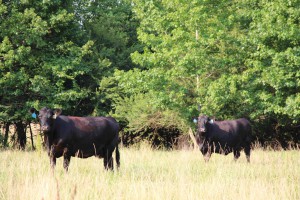
Living on the farm and commuting to town each day, mornings and late afternoons for Jimmy were spent tending to cattle while workdays went to financing crops, cattle and equipment for neighboring ranchers and later real estate sales. Five decades later, the Collins family is a case study of how each person can find their niche in the world and on the farm, all the while supplementing the cattle enterprise with outside income.
“If you characterize all of us, my granddad [James] was the consummate agronomist,” says Jimmy’s son, Jim. With his own growing family, the two partner in Collins Farms today. “He [James] was also the engineer – with a high school degree, but still the engineer.”
“Without question, my dad is the nutritionist,” Jim continues. “And then my specialty’s been genetics and marketing.”
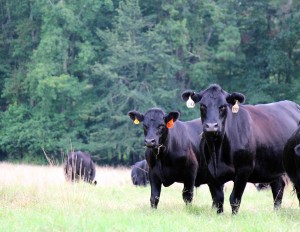
“We try to run a balanced program, rather than chasing outliers,” Jimmy says. “Sure, it’s a slower process, but when you get there, you’re there. We look at growth and carcass quality and strive to be a tier above the industry average.”
In an industry that sometimes resists change, the Collins men embrace it, like, for instance, when they decided to transition from complete phenotypic to a combination of genetic and phenotypic selection.
“It’s a matter of surviving really and truly,” Jimmy says. “You’ve got to be productive and you can do what you want, but it better be successful and work for the folks who are going to be consuming the end product.
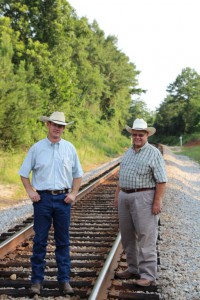
Terry Harris, Boston, Ga., can tell of cows he purchased from the Collinses 11 years ago that maintain and reproduce today. Then there’s new cattlemen to the business like Jones Woody, Culloden, Ga., who has followed his calves on feed in Iowa and received data showing 81% CAB and USDA Prime.
Faint in the distance, then all at once overpowering, again the train bursts through the family land as I stand and learn their lives.
A constant. A reminder of what’s been and what’s to come.
For years, three generations of Collins men worked together with their families to improve their cattle and impress the consumer at the end of the line. Rest assured they’ll continue.
Right on down the tracks.
Thanks for allowing me to tell your story,
Laura
To learn more about Collins Farms and their commitment to the brand, check out this video.
You may also like
Legacy in the Golden Land
On a quiet stretch of Northern California rangeland, a different story unfolds. The Borror family’s legacy modestly speaks through the cattle they raise, the ground they steward. The generations who’ve made a life here demonstrate commitment to doing things right, even when no one is watching.
Helping Hands, Helping Herds
“When I die, I want to come back as one of your cows,” murmurs a friend to Steve Zybach. Full to the brim from an alfalfa ration every day, bountiful fields of lovegrass stretched out across the Texas Panhandle—and owners who leave no ounce of cattle care up for question. The Zybachs’ motivation for this level of dedication to their Angus cattle is simply love.
An Ambassador for All
Joanie, with daughter Lindsey and her husband, Adam Hall, raise registered Angus cattle with two primary goals: producing high-quality seedstock that perform well in a wide variety of environments and ensuring end-user satisfaction. Those goals tie everything together, from promoting Angus to other producers to sharing their story with CAB partners and beef consumers.

